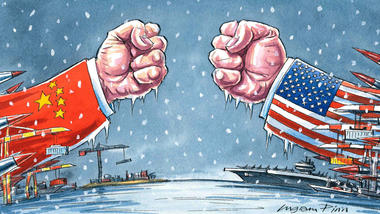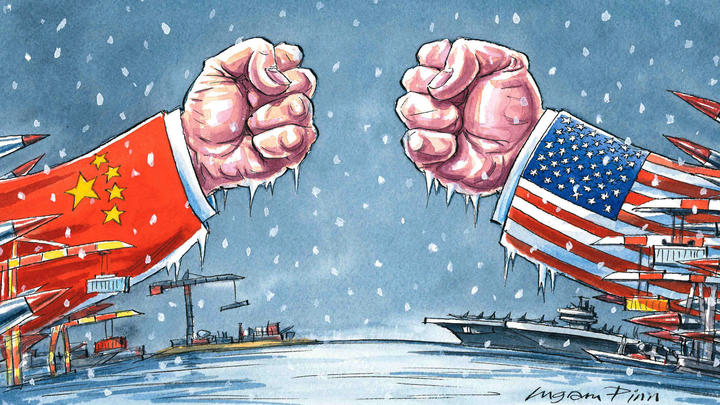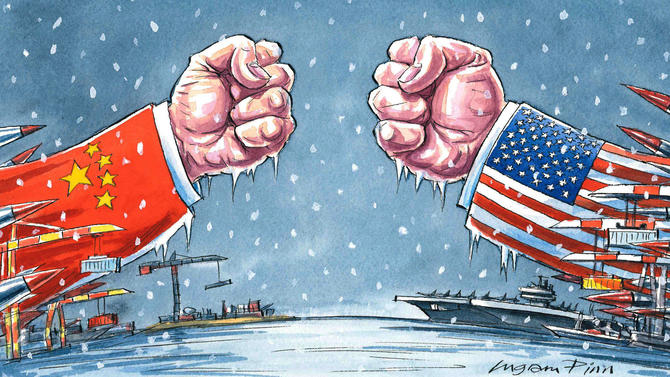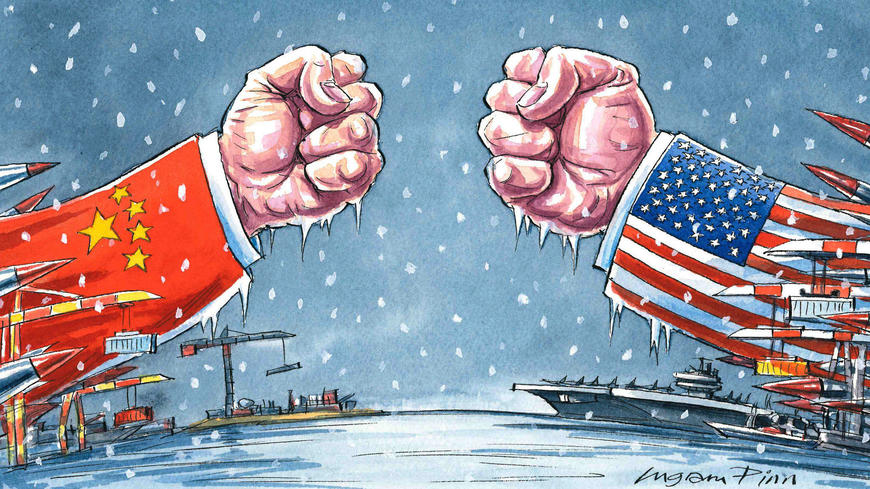



US-Chinese relations in 2023 are characterized by complex dynamics shaped by a multitude of factors. This essay explores the state of US-Chinese relations, focusing on key issues such as the war in Ukraine, the Taiwan question, and allegations of Chinese electronics sales to Russia for missile development. By analyzing these aspects, we can gain insights into the evolving geopolitical landscape and the challenges faced by the United States and China in maintaining a delicate balance.
I. The War in Ukraine and its Impact
The ongoing war in Ukraine has significant implications for US-Chinese relations. While the United States supports Ukraine's sovereignty and territorial integrity, China has maintained a more cautious approach. China has refrained from overtly siding with either party, recognizing the complexity of the conflict and the potential repercussions for its own foreign policy goals.
China's approach to the war in Ukraine reflects its policy of non-interference and its emphasis on maintaining stable international relations. It seeks to protect its economic and strategic interests while avoiding direct confrontation with the United States. However, China's stance has drawn criticism from some quarters, particularly those who advocate for stronger international condemnation of Russia's actions in Ukraine.
II. The Taiwan Question and its Influence
Taiwan remains a contentious issue in US-Chinese relations, with both countries holding divergent views on the matter. The United States continues to support Taiwan's democratic governance and advocates for its participation in international organizations. China, on the other hand, views Taiwan as an integral part of its territory and opposes any actions that could imply Taiwanese independence.
Tensions have escalated in recent years, with China increasing military activities near Taiwan and the United States reaffirming its commitment to the island's security. The situation in Taiwan poses a significant challenge for US-Chinese relations, as any miscalculation or escalation could have far-reaching consequences. Both countries must navigate this sensitive issue with caution to avoid a direct confrontation that could escalate into a larger conflict.
III. Allegations of Chinese Electronics Sales to Russia for Missile Development (400 words)
Accusations regarding Chinese electronics sales to Russia for missile development have raised concerns in US-Chinese relations. While it is important to approach such allegations with caution, any evidence of Chinese involvement in facilitating missile development for Russia would undoubtedly strain relations between the United States and China.
Such actions, if proven, would raise questions about China's commitment to international non-proliferation efforts and its adherence to global norms. It could lead to increased scrutiny from the United States and other countries regarding China's arms exports and technological transfers. This could further heighten tensions and erode trust between the two nations.
IV. Navigating the Challenges and Seeking Common Ground (450 words)
Amidst these complex issues, it is crucial for the United States and China to find common ground and maintain constructive dialogue. Both countries have significant economic interdependencies, and cooperation on global challenges such as climate change and public health is essential.
Open and transparent communication channels are vital for preventing misinterpretations, managing crises, and reducing the risk of conflict. Regular high-level dialogues and diplomatic engagements can help foster mutual understanding and identify areas of common interest. Confidence-building measures, such as military-to-military exchanges and joint exercises, can promote trust and reduce the likelihood of misunderstandings in regional hotspots.
Furthermore, multilateral forums provide opportunities for the United States and China to collaborate on global issues and find common solutions. Platforms such as the United Nations and the World Trade Organization offer avenues for dialogue and negotiation, allowing both countries to address their concerns and interests within a broader international framework.
Conclusion
US-Chinese relations in 2023 are characterized by a delicate balance between cooperation and competition. The war in Ukraine, the Taiwan question, and allegations of Chinese electronics sales to Russia for missile development pose significant challenges. However, it is imperative for both countries to seek common ground, maintain open lines of communication, and engage in constructive dialogue. By fostering understanding, managing disputes, and promoting cooperation, the United States and China can navigate the complexities of their relationship and work towards a more stable and mutually beneficial future.